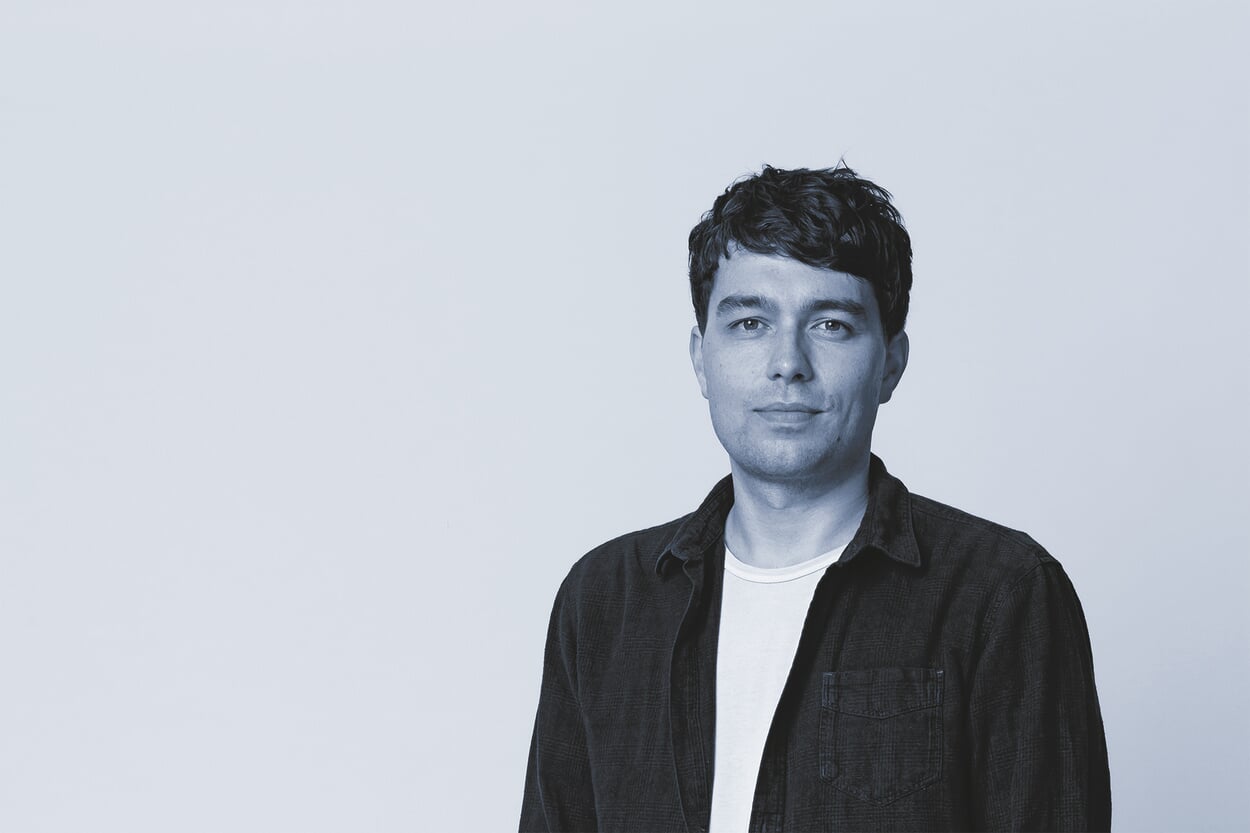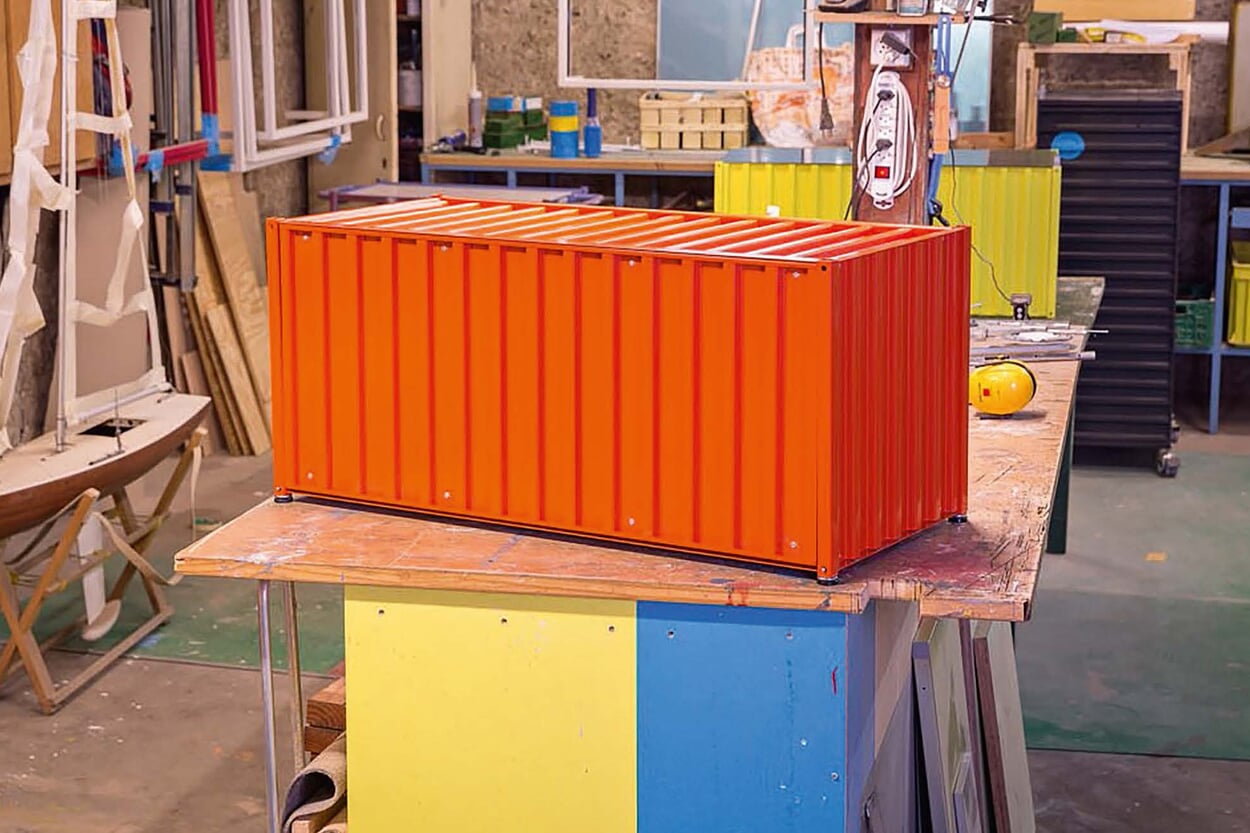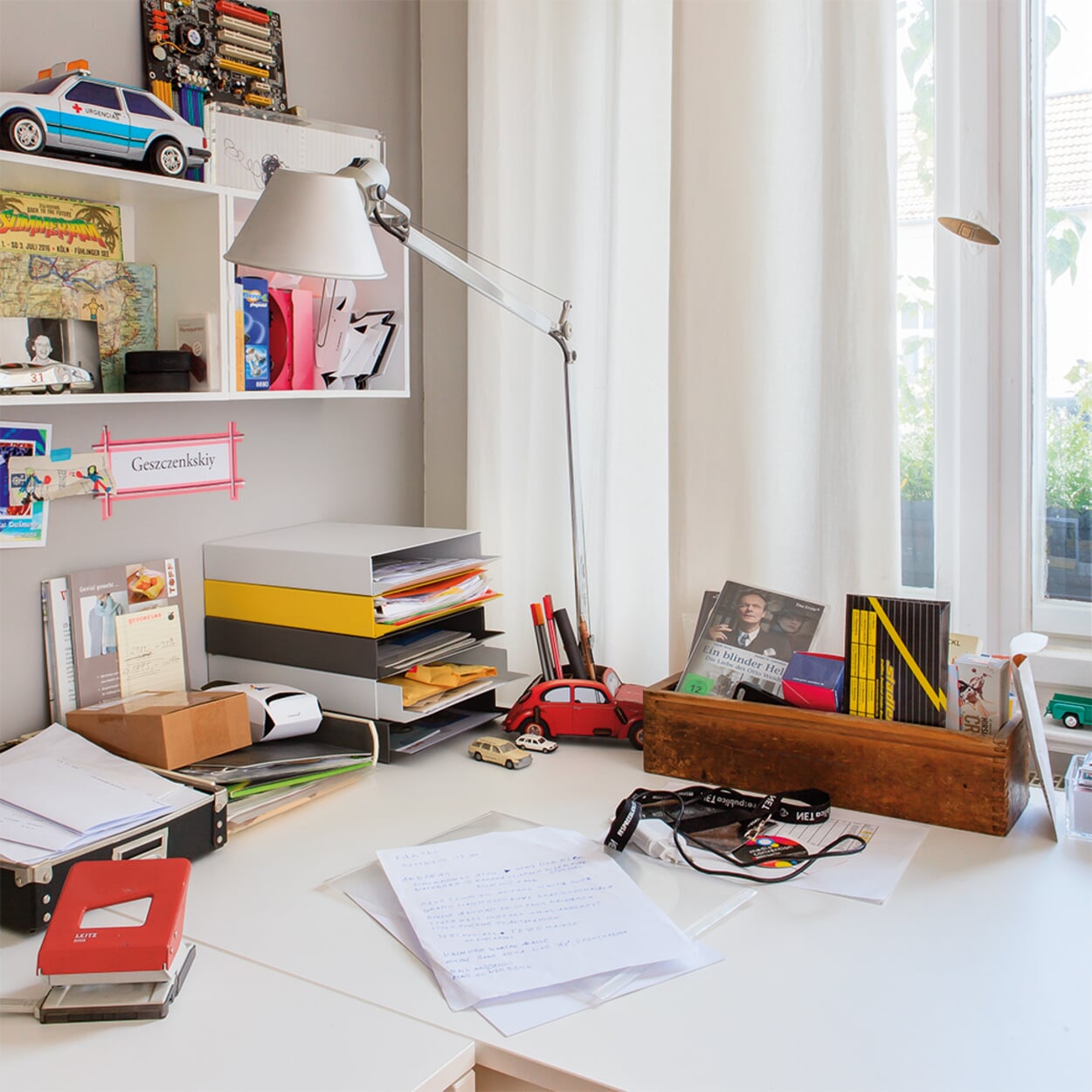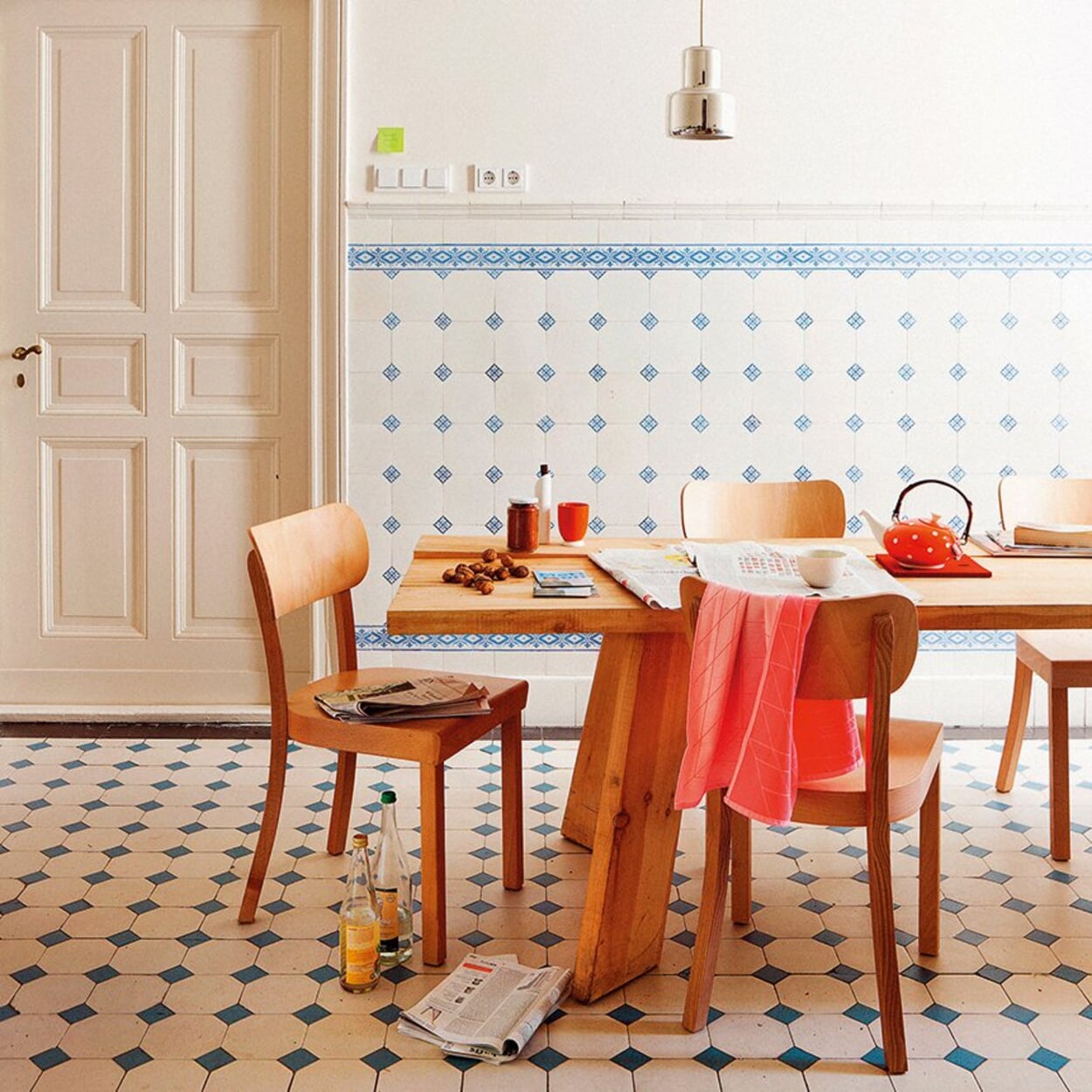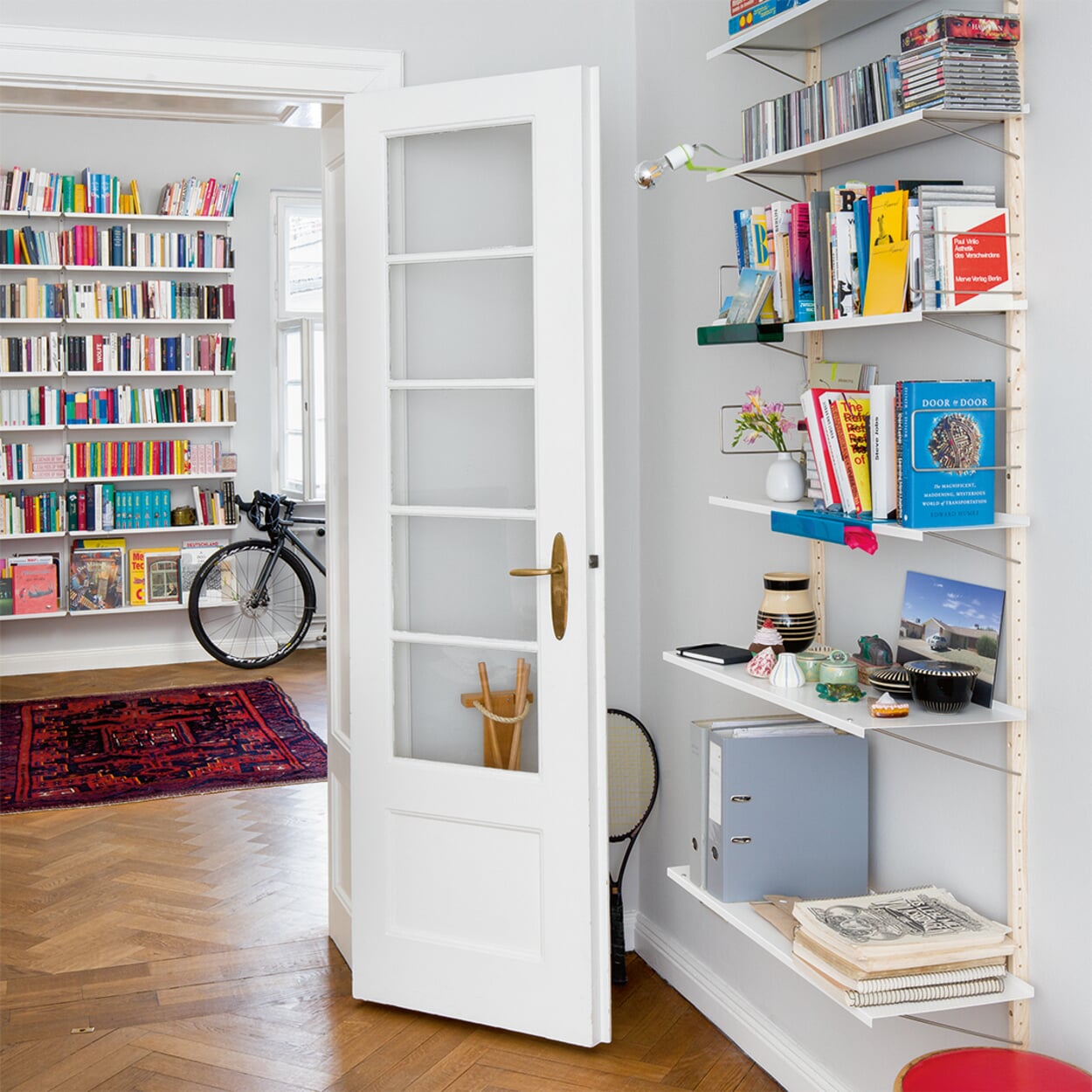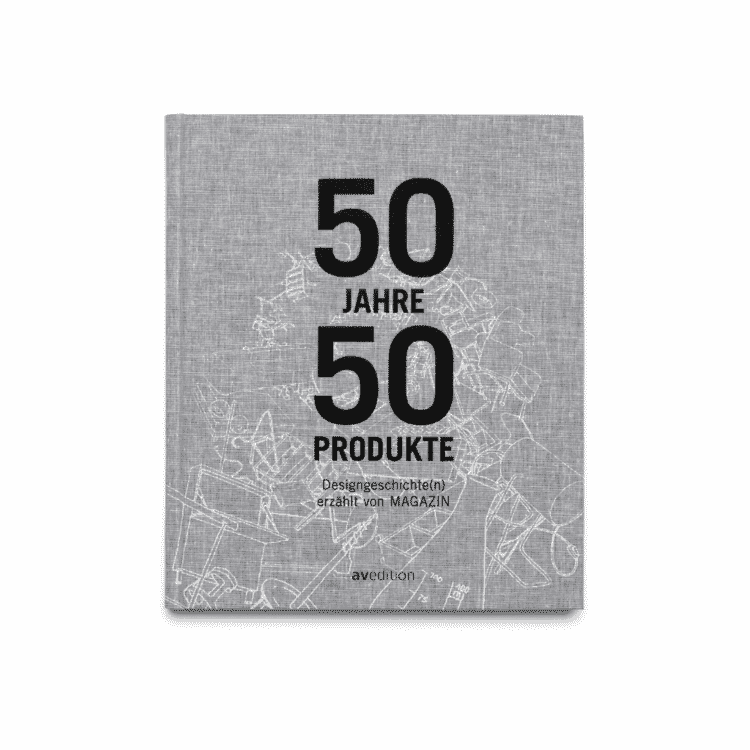DESIGN STORY(IES)
Sustainability in product development
Philipp Witte from MAGAZIN in conversation with MUCBOOK*
We asked Philipp Witte from MAGAZIN how he integrates sustainability into his day-to-day work as a product developer and what smart solutions there are in terms of shipping and packaging.
What is your job at MAGAZIN?
I am a product developer and therefore jointly responsible for the development and maintenance of MAGAZIN products, our own product line at MAGAZIN. We bring the designs and prototypes of external designers to production readiness, but we also develop our own products from scratch.
What role does sustainability play in product development? Do you also pay attention to using sustainable materials in your daily work or do you focus primarily on the longevity of the products?
The first step towards a sustainable product is to design it for a long product life. [...] As a furniture manufacturer, we are generally reluctant to present our products as sustainable or ecological. No matter how "green" the furniture is, it has a negative impact on the environment, so we need to be honest and transparent. What is important to us? Material selection and origin, separability, packaging material, production location in dialog with utility value, durability and appropriate pricing. A particularly abrasion-resistant powder coating, such as on our CONTAINER DS, for example, may contain more plastic, but it makes the surface much more valuable and extends its durability enormously. So sometimes you have to weigh things up. It is best when utility value and ecological qualities complement each other. This also requires customers to be open to rethinking some of their habits. We believe that a rustic wooden table like our FELDMARK table should look alive and develop a patina. We try to combine as few materials as possible in every new development and, if we do, to keep them as easily separable as possible through the design. This means plugging and screwing instead of gluing and pressing. It makes it much easier to recycle the materials at the end of a product's intended long life. The use of mono-materials is exemplified by the FELDMARK table or the STAPLER shelf, where the powder coating can be seen as an additional material. The RM3 wall shelf or the SIMPLON bed are assembled from two to three materials and are very easy to separate. These principles can be seen in most MAGAZIN products.
Stacker storage
TABLE FELDMARK ZWO
WALL SHELF RM3
And apart from product development? Some of your products are very large and therefore require a lot of packaging material.
Shipping heavy and large products with parcel services or freight forwarders places particularly high demands on the packaging. A product that is damaged during shipping and has to be returned and then recycled is an ecological and economic burden. Our top priority is therefore to get the products to our customers in perfect condition. One of our current projects is to redesign all packaging in the current product range to include paper-based solutions and as little plastic as possible. We are therefore looking for substitutes or developing constructive solutions that do not restrict the transport safety of the goods. [...] This may be more expensive, but we consider it absolutely necessary. A second important point in parcel shipping is back-friendly handling for parcel deliverers and customers. The packaging must therefore be as light and easy to carry as possible. Technologies and production options are constantly changing, so we are always on the lookout for new solutions and alternatives
Packaging is one thing, but shipping itself is also a challenge for the carbon footprint. What is your strategy?
We have our products manufactured almost exclusively by craftsmen and medium-sized companies in Germany in order to keep transport routes short and guarantee social and ecological standards. This text is an excerpt from the book "50 Jahre 50 Produkte - Designgeschichte(n) erzählt von MAGAZIN".
Honored with the German Design Award 2024
The book on MAGAZIN! 50 years of MAGAZIN encourage a special look at topics and products, stories and topicality. Founded in Stuttgart in 1971, MAGAZIN has experienced and written history. Companions and contemporaries, product designers, customers and lovers of the brand have their say on what has happened. A collection of essays, e.g. by Sibylle Berg on "Schöner Wohnen" and Maxim Biller on "Erinnerungen von Morgen", meets contemporary topics on product design, design and furnishing. Supplemented by a special look at 50 exemplary products from the history of MAGAZIN. Including the popular and the little-seen, highlights and the inconspicuous, the favorite products of MAGAZIN and their background stories. "An exciting and entertaining journey through the past 50 years of design and living aesthetics," said the jury of the German Design Award 2024 and chose our book as "Winner 2024". We are delighted!
*MUCBOOK has been citymagazin in Munich since 2009 and operates a co-working space in the MUCBOOK Clubhouse - equipped with furniture from MAGAZIN.

